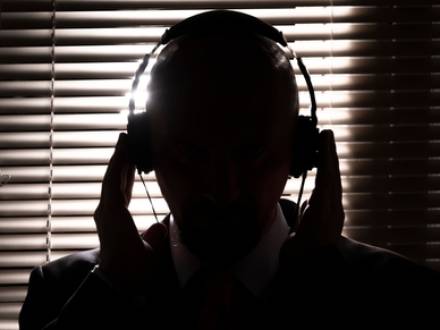The Two Sides of Eavesdropping and Wire Taps
 As most of us know, recording police in public areas has become a common occurrence. Prior to 2014, citizens could be prosecuted for recording police or other public officials without consent in Illinois. A law passed in December 2014 (720 ILCS 5/14) made it legal to record public officials and police in public areas without incurring criminal charges.
As most of us know, recording police in public areas has become a common occurrence. Prior to 2014, citizens could be prosecuted for recording police or other public officials without consent in Illinois. A law passed in December 2014 (720 ILCS 5/14) made it legal to record public officials and police in public areas without incurring criminal charges.
Conversely, once this new "eavesdropping law" went into effect, it became much easier for police to record private citizens—under certain circumstances. Conversations that remain protected are those where there is a reasonable expectation of privacy. These situations require consent from all parties being recorded.
Recording conversations that are not considered private has no limits, although the lines between private and non-private can often be blurry. If you have questions regarding the legality of a recording, it is important that you speak to a knowledgeable Wheaton, IL criminal defense attorney.
How Do the Definitions of "Surreptitious" and "Reasonable Expectation of Privacy" Muddy the Issue?
While well-intentioned, the new eavesdropping statute has caused other issues. For instance, in the age of cell phones, what is considered a "reasonable expectation of privacy"? Recording the police during their normal course of duty would not be considered private, but what about recording a conversation between off-duty police officers at a neighbor’s barbeque as they discussed a case involving other people?
Most people have their cell phones in clear view most of the time. If another person can see the cell phone, how is recording an incident or conversation "surreptitious"? Yet most of us would object to being photographed as we emerged from the locker room showers at our local gym. In fact, most gyms with locker rooms prohibit cell phone use in the locker room, and all bathrooms and bedrooms are generally considered private.
The New Law Allows More Opportunities for Police to Record Without a Warrant
Police were essentially given a fast track to conduct surveillance on citizens’ private communications if they reasonably believed those citizens were about to commit a "qualifying offense," including drug deals. The police must only get a casual "thumbs-up" from the local state’s attorney rather than a warrant from a judge for a 24-hour wiretap.
In short, if the government believes a person is about to commit a particular crime, it can snoop on that person’s phone calls and conversations for a short period of time without the necessity of a warrant. These crimes include drug crimes, gun crimes, sexual assaults, and kidnapping.
What Are the Penalties for Illegal Eavesdropping?
Assuming a person is eavesdropped on in a place where the individual does have a reasonable expectation of privacy and in a manner that is surreptitious, there are severe penalties for illegal eavesdropping. Eavesdropping or wiretapping is a Class 4 felony with a sentence of one to three years in prison, a potential fine as large as $25,000 - or thirty months’ probation as an alternative to prison time.
Law enforcement officers are subject to the same laws. Barring the exceptions listed above, wiretapping without a signed warrant from a judge is illegal and can be prosecuted. It is generally considered easier for a federal agency like the FBI to obtain a wiretapping warrant than for a state government. A person can also be prosecuted for illegal wiretapping or eavesdropping if they hire or direct someone to conduct the actual eavesdropping.
Contact a DuPage County, IL Criminal Defense Lawyer
If you are being charged with illegal eavesdropping, you should take these charges very seriously. Defending them can be complex, and the penalties for a conviction are severe. An experienced Wheaton, IL criminal defense attorney from Stephen A. Brundage can determine the best way to defend your charges.
Attorney Brundage has a background as an investigator, law enforcement instructor, evidence technician, and police officer, which provides key advantages to clients, and has practiced law in Illinois for more than three decades. Call 630-260-9647 to schedule your free consultation.

 630-260-9647
630-260-9647




